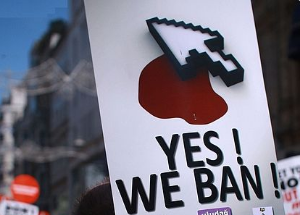Baydar: silencing media to win the election
Yavuz Baydar in Bugün asks, what kind of game is it that is being played openly now with the suffocation of media? The preservation of power depends on the emergence of a three-party parliament at the polls on November 1. An equation of four parties will spell disaster. Thus, it is absolutely necessary on the hand that the HDP is left out of the parliament, and on the other hand, that MHP is undermined and its votes transferred to AKP. In order to achieve these goals, a never before seen manipulation of public opinion is called for. The “silent majority” in Turkey – the lower and middle classes – (at a rate of around 80 percent) follow only the TV channels as sources of information. And note that the efforts of the government to cut the media down to size have always been concentrated on the media groups that have TV channels. Of course, the turn will come to independent newspapers like Cumhuriyet, Taraf, Sözcü and Birgün as well after this. If their attempts to suffocate the media results in a backlash, if the distribution of votes among the parties do not change, the option to postpone these elections is kept as a card in the cupboard.
As Dogan Yields, Turkish Media Freedom Plummets
By Svante E. Cornell (vol. 3, no. 1 of the Turkey Analyst)
Politics, Media and Power in Turkey
By M. K. Kaya and Svante E. Cornell (vol. 1, no. 8 of the Turkey Analyst)
Political leaders in Turkey have tried to manipulate media for decades, and the AKP government is no exception. The AKP government is apparently bent on creating a pliant media. As much of the centrist, mainstream media turned against it in 2007, the government has assertively sought to secure its influence over media, engineering the takeover of major media outlets by friendly forces. The recent takeover by CALIK holding of the Sabah/ATV group and the machinations involving the Dogan holding are cases in point.
Turkey’s Internet Law: Another Chapter towards Absolute Censorship that Dooms EU Accession?
By Hendrik Müller (vol. 7, no. 6 of the Turkey Analyst)
Turkey recently promulgated a new Internet bill and swiftly used it to block access to the micro-blogging platform Twitter, and subsequently Youtube. In line with a longer history of fundamental rights violations, this step marks another chapter in Turkey’s recent path towards absolute censorship. In light of international and regional commitments, however, Turkey is increasingly at odds and may even risk forsaking its EU membership candidacy.



